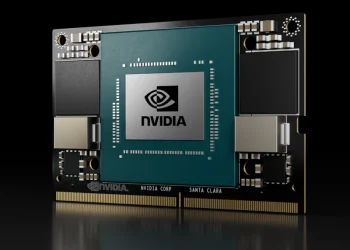Mark Theriault transformed his cooling product vision into reality using AI startup innovation. Consequently, the FITY founder developed clever beverage coolers with NVIDIA GeForce RTX assistance. Moreover, this AI startup innovation approach helped a single entrepreneur compete with established companies.
Theriault envisioned cold drink holders with freezable pucks instead of messy ice. Specifically, the FITY Flex cooler design features customizable shoe charms for personalization. Furthermore, AI startup innovation enabled rapid prototyping from basement 3D prints to mass production. Additionally, the entrepreneur faced significant challenges scaling from sketches to production-ready designs.
Traditional product development involves sketching, computer-aided design, and rapid prototyping. However, Theriault incorporated AI startup innovation throughout his workflow. Specifically, he uses Stable Diffusion XL for packaging design inspiration. Furthermore, the NVIDIA TensorRT software development kit accelerates generation by 60 percent.
ComfyUI provides granular control over image generation processes. Moreover, the modular interface allows customization of prompting, sampling, and post-processing. Additionally, AI startup innovation tools enable advanced users to fine-tune every generation step. Nevertheless, Theriault leverages these capabilities for consistent brand aesthetics.
The entrepreneur creates complete computer graphics-based advertising campaigns using AI. Specifically, his RTX 4080 SUPER GPU delivers essential performance for training iterations. Furthermore, AI startup innovation reduces development time from months to weeks. Additionally, custom Flux LoRA models maintain visual consistency across marketing materials.
Theriault shifted from AI-assisted renders to fully AI-generated product imagery. Specifically, he trained custom Flux LoRA models in-house for brand consistency. Moreover, low-rank adaptation models provide hyper-customized generation with minimal compute costs. Nevertheless, AI startup innovation requires understanding advanced technical concepts.
ControlNets help control image generation for specific tasks. Furthermore, Theriault uses these AI models for human poses and depth mapping compositions. Additionally, scribble-to-image conversion accelerates concept development. Nevertheless, the AI startup innovation workflow demands continuous learning and adaptation.
FLUX.1 excels at generating legible text within marketing images. Specifically, this addresses common text-to-image model challenges. Moreover, NVIDIA collaborated with Black Forest Labs to reduce model sizes through quantization. Additionally, TensorRT provides up to 2x speedup over traditional PyTorch implementations.
NVIDIA’s FLUX.1 NIM microservice simplifies model usage in ComfyUI. Specifically, containerized versions enable FP4 quantization and TensorRT support. Furthermore, VRAM requirements reduce from 23GB to just over 11GB. Additionally, performance improves by 2.5x compared to standard implementations.
Theriault uses Blender Cycles for final renderings and photorealistic outputs. Moreover, NVIDIA’s AI Blueprint for 3D-guided generative AI simplifies positioning workflows. Nevertheless, AI startup innovation tools make professional-quality renders accessible to solo entrepreneurs.
Large language models generate marketing copy optimized for search engines. Specifically, tone and storytelling customization save thousands in legal fees. Furthermore, patent and provisional applications complete faster with AI assistance. Additionally, AI startup innovation reduces content creation time significantly.
Solo startup founders face “death by a thousand cuts” from micro-decisions. Specifically, every texture, word, photo, and accessory requires individual attention. Nevertheless, AI startup innovation tools help manage overwhelming decision-making processes. Furthermore, on-the-fly generation capabilities accelerate content creation dramatically.
Time savings translate directly into cost reductions for bootstrapped startups. Moreover, professional-quality outputs compete with agency-produced materials. Additionally, AI startup innovation levels the playing field between solo founders and funded teams. Nevertheless, learning curves require initial investment in skill development.
Hardware acceleration proves crucial for practical AI implementation. Specifically, GeForce RTX 5050 laptops start at $999 for accessible performance. Furthermore, fifth-generation Tensor Cores optimize AI and deep learning workloads. Additionally, CUDA optimizations in PyTorch seamlessly accelerate popular workflows.
The AI startup innovation trend democratizes product development for entrepreneurs. Specifically, solo founders can now access tools previously available only to large companies. Moreover, NVIDIA’s ecosystem provides comprehensive solutions from concept to completion. Nevertheless, staying current with rapidly evolving AI capabilities remains challenging.
RTX AI Garage blog series highlights community-driven innovations regularly. Furthermore, AI Blueprints simplify implementation for newcomers. Additionally, AI startup innovation spans creative workflows, productivity apps, and digital humans. Nevertheless, ethical considerations become increasingly important as AI adoption grows.
Hardware advancement continues driving AI accessibility forward. Specifically, GeForce RTX 5050 features include fifth-generation AI Tensor Cores and fourth-generation RT Cores. Moreover, ninth-generation NVENC encoders improve video processing capabilities. Additionally, sixth-generation NVDEC decoders enhance media workflow efficiency.
In conclusion, AI startup innovation transforms solo entrepreneurship possibilities significantly. Mark Theriault’s FITY success demonstrates AI’s potential for product development. Moreover, NVIDIA’s comprehensive toolset enables professional results on modest budgets. Consequently, AI startup innovation represents a fundamental shift in startup capabilities and competitiveness.
The combination of accessible hardware, optimized software, and creative workflows empowers entrepreneurs like never before. Specifically, solo founders can now execute complex projects independently. Furthermore, AI startup innovation reduces traditional barriers to market entry. Therefore, the future of entrepreneurship increasingly relies on intelligent tool adoption and creative AI integration.








